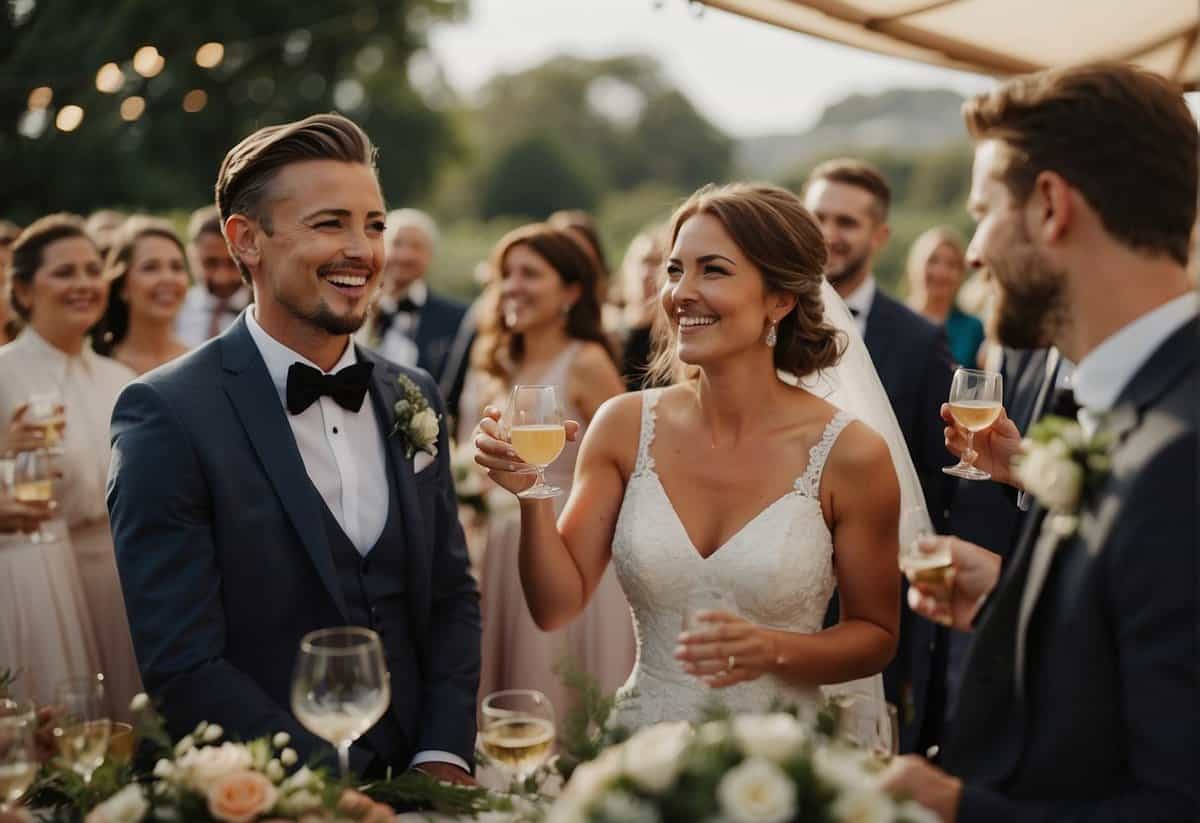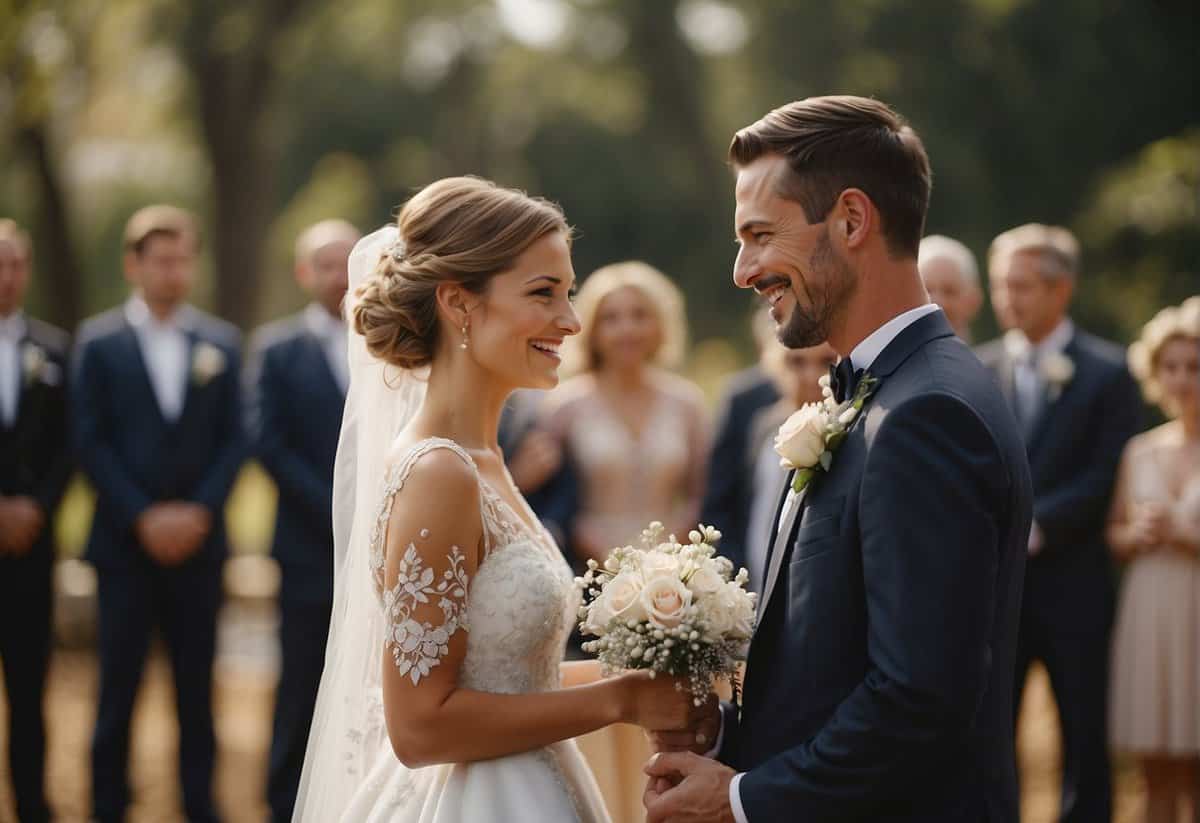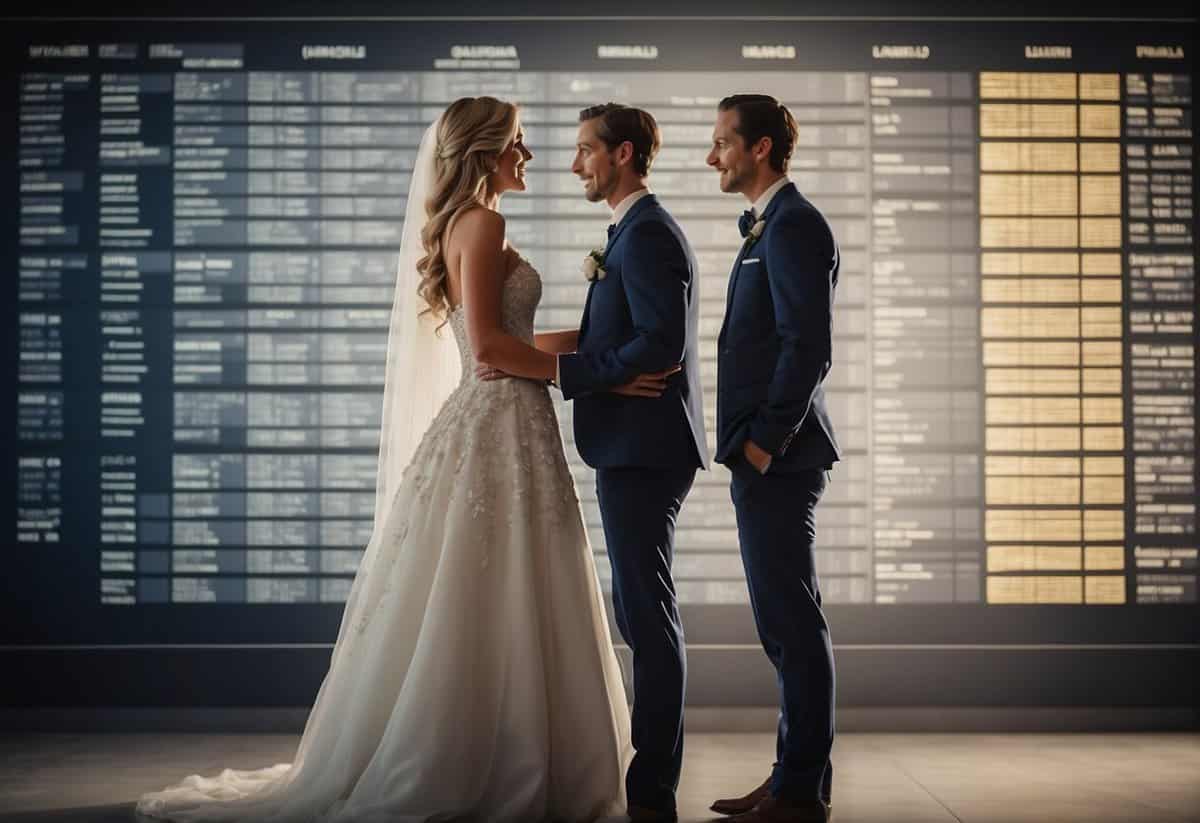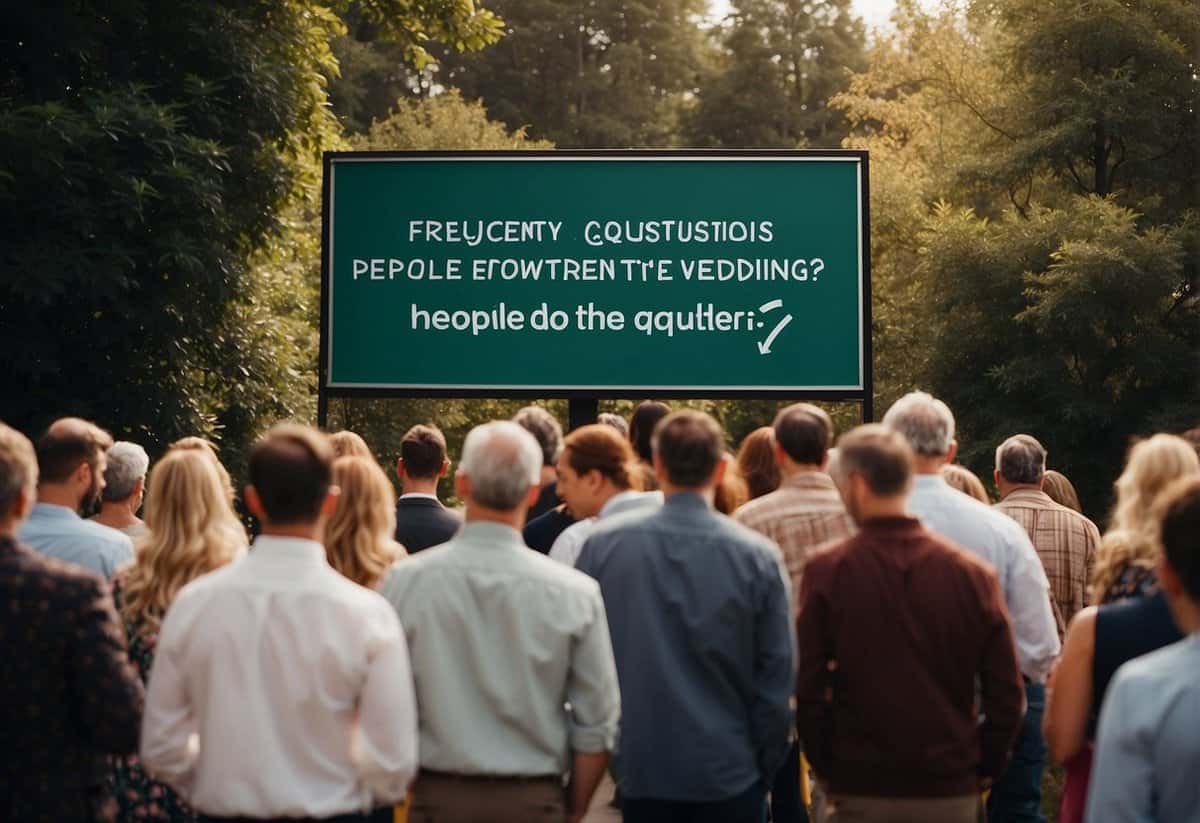Why Do People Want Weddings? Unveiling the Desire for Matrimonial Celebrations
Weddings are a significant life event for many people around the world, symbolizing the beginning of a new chapter in their relationship. They serve not only as a legal formality, but as a public declaration of love and commitment between partners. People often envision their wedding day as a joyful celebration where they can share one of the most intimate moments of their lives with their closest family and friends.

The decision to have a wedding goes beyond personal choice; it is deeply rooted in cultural and social traditions. In many societies, weddings represent an essential rite of passage, a ceremony that reinforces the societal fabric by formalizing the bond between partners. The event is often imbued with rituals and customs that reflect the couple’s heritage and values, making it a unique and meaningful experience shared across generations.
Key Takeaways
- Weddings are a public declaration of love and a celebration with loved ones.
- They hold deep cultural and social significance in many societies.
- The decision to marry is both a personal choice and influenced by various societal factors.
Cultural and Social Significance

Weddings are more than just personal celebrations; they carry profound cultural and social significance. These events are deeply rooted in tradition and offer a unique opportunity to reinforce family bonds and community ties.
Tradition and Social Expectations
Tradition plays a pivotal role in your wedding. Often, it dictates the flow of the wedding ceremony, from the exchange of vows to the wearing of something old, new, borrowed, and blue. These customs are not merely for aesthetics but serve as a rite of passage, marking your transition from single to married status within society. You’ll find that social expectations often guide the decision to adhere to these traditions, as they are a means of honoring your heritage and aligning with societal norms.
Family Bonding and Community
Your wedding is a special occasion that brings friends and family together, creating memories and strengthening bonds. It’s a time for family to unite and often, a chance for parents to celebrate a milestone in their child’s life. Significant moments like these contribute to the sense of togetherness and community support that many consider essential for embarking on the journey of marriage. The event doesn’t just symbolize your commitment to your partner; it’s also about your families connecting and establishing a united front.
Personal and Emotional Reasons

When you think of weddings, you often envision a grand celebration that marks the beginning of a lifelong journey. It’s a day filled with profound personal and emotional significance, focusing on the promise two people make to each other.
Celebration of Love and Commitment
Your wedding day is a public affirmation of your love and commitment to your partner. It’s your chance to declare, in front of friends and family, your intention to stand by each other’s side. This ceremonial commitment acts as a foundation for your future relationship.
Creating Lifetime Memories
A wedding is not just an event; it’s a compilation of moments destined to become cherished memories. Every smile, vow, and dance is a brushstroke in the masterpiece of your wedding day. These memories serve as a reminder of the joy and love you experienced, becoming treasured stories to share for years to come.
Economic and Practical Considerations

When navigating the complex landscape of matrimonial celebrations, you’ll likely consider how the costs fit within your financial goals and planning. Equally, the pervasive influence of the wedding industry shapes your options and often your entire approach to organizing the big day.
Financial Security and Planning
Your journey to financial security often intersects with important life milestones, like your wedding. Critical in the planning phase is setting a budget that aligns with your long-term financial aspirations. It’s not just about the number; it’s about understanding how this significant expense could influence your shared financial future. Whether you’re allocating savings for a down payment on a home or planning for eventual retirement, weighing the costs of your wedding against these goals is crucial. Remember, higher wedding expenses can also lead to increased stress, potentially overshadowing what should be a joyful experience.
- Budgeting: Start by determining a clear and strict budget designed to keep your expenses in check.
- Expenses: Consider all facets, from venue hire to catering and attire. Hidden costs can quickly accumulate, so thorough planning is vital.
The Role of the Wedding Industry
The wedding industry is adept at setting trends and creating a narrative of the “perfect wedding,” which often comes with a hefty price tag. Knowing how to navigate this terrain is essential, as you’ll encounter various services vying for your attention and money, including those from a wedding planner who can either save you money through savvy negotiations or increase overall costs with high-end suggestions.
- Wedding Costs: Understand that industry standards are not mandates. You have the freedom to prioritize what’s truly important to you.
- Wedding Planner: If you choose to work with a planner, be explicit about your budget and ensure they are motivated to respect it.
Your wedding is a personal celebration, and though the industry presents numerous options and ideas, sound economic and practical considerations are the bedrock of a celebration that’s as joyful as it is financially responsible.
Frequently Asked Questions

When you’re exploring the tradition of weddings, you likely have a lot of questions about why these events hold such significance across cultures, religions, and personal beliefs. Here, we address your curiosities through some of the most frequently asked questions.
What are the cultural significances of holding a wedding?
Cultural significance of weddings often stems from celebrating the union of two individuals and their families. It’s a way for cultures to honor heritage and customs while embracing the couple’s future together.
How does a wedding ceremony fit within religious traditions?
Many religions view marriage as a sacred covenant, and a wedding ceremony is the gateway to this significant spiritual commitment. The traditions and rituals within the ceremony can deeply reflect a couple’s religious beliefs.
What are some common reasons couples choose to have a wedding reception?
Couples often host a wedding reception to share their joy and celebrate their union with friends and family. It’s an opportunity for guests to offer their support and partake in the start of the couple’s married life.
Can you explain some motivations behind spending a lot on weddings?
Spending on weddings can be motivated by the desire to create a memorable and unique experience, often seen as a reflection of a couple’s love story. For some, it’s about creating a dream event that they have always envisioned.
What are the social expectations associated with attending weddings?
Socially, attending weddings means showing respect and support for the couple’s relationship. It can involve participating in certain customs, such as giving gifts, dressing appropriately, and engaging in the celebration.
How does marriage differ from a wedding event, and why do couples opt for the latter?
Marriage is the ongoing legal and personal relationship between two people, while a wedding is the event that often marks the start of this partnership. Couples choose to have a wedding event to publicly declare their commitment and share this significant milestone.


